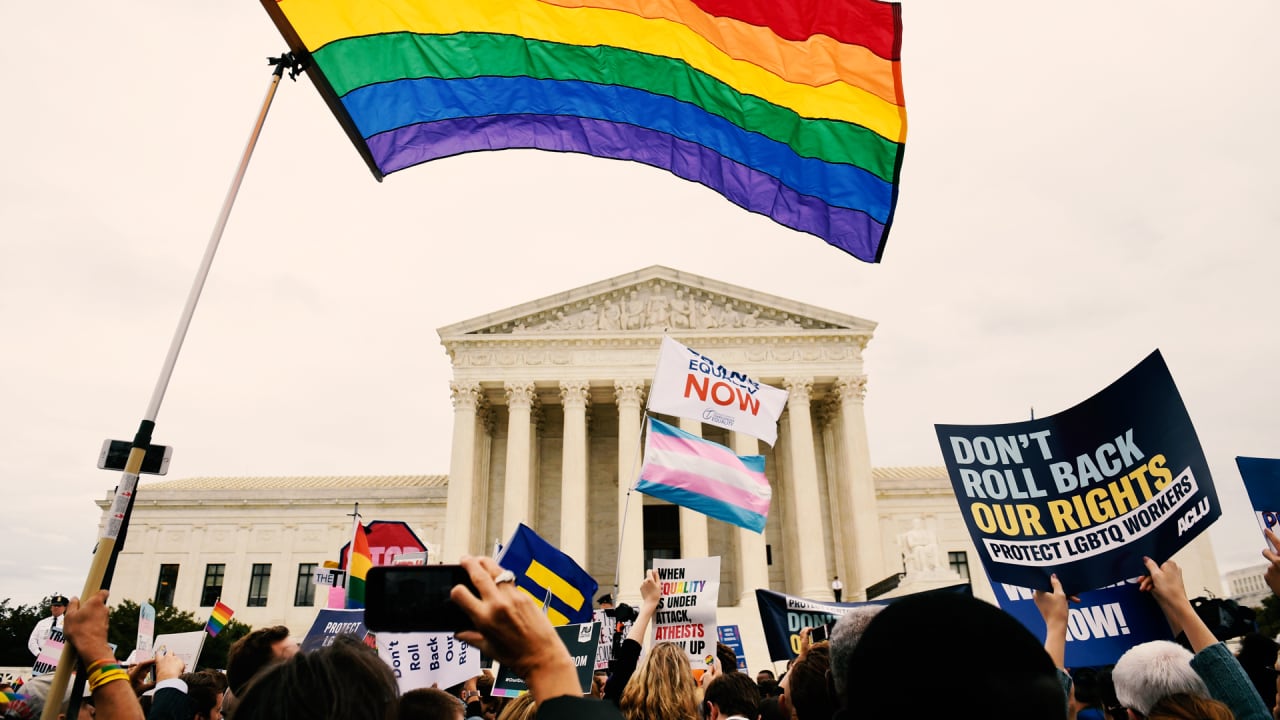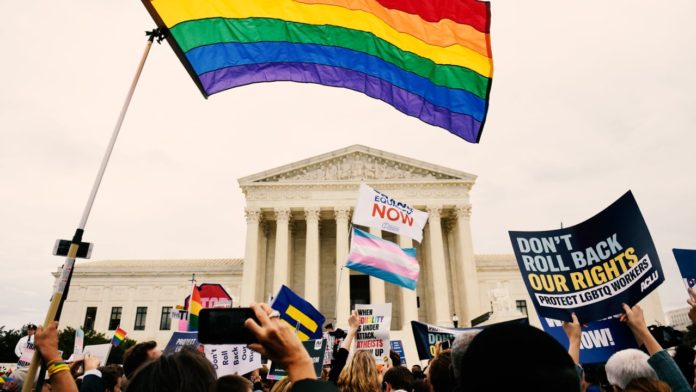
In a sweeping victory for LGBTQ civil rights, the U.S. Supreme Court ruled Monday that an employer could not fire someone on the basis of their sexual orientation or gender identity.
The 6-3 decision has wide-reaching implications for gay, lesbian, and transgender employees in states where local laws do not specifically protect them. (One count last year found that 17 states had no protections at all for such workers.) Monday’s decision ruled that Title VII of the landmark Civil Rights Act of 1964—which already bans workplace discrimination on the basis of protected characteristics such as race and sex—should be applied to sexual orientation and gender identity as well.
Here’s the opening paragraph from the majority opinion, written Justice Neil Gorsuch:
“Sometimes small gestures can have unexpected consequences. Major initiatives practically guarantee them. In our time, few pieces of federal legislation rank in significance with the Civil Rights Act of 1964. There, in Title VII, Congress outlawed discrimination in the workplace on the basis of race, color, religion, sex, or national origin. Today, we must decide whether an employer can fire someone simply for being homosexual or transgender. The answer is clear. An employer who fires an individual for being homosexual or transgender fires that person for traits or actions it would not have questioned in members of a different sex. Sex plays a necessary and undisguisable role in the decision, exactly what Title VII forbids.”
The case, Bostock v. Clayton County, Georgia, involved a gay man who was fired from his job as a social worker after participating in a gay softball league.
In his opinion, Gorsuch conceded that the drafters of the original act may not have anticipated that its protections would extend to sexual orientation but that “the limits of the drafters’ imagination supply no reason to ignore the law’s demands.”
Gorsuch was joined by Chief Justice John Roberts, and justices Ruth Bader Ginsburg, Stephen Breyer, Sonia Sotomayor, and Elena Kagan. Conservative Justices Samuel Alito, Clarence Thomas, and Brett Kavanaugh dissented.
The ruling comes as LGBTQ supporters around world celebrate Pride Month, which takes place every June to mark the Stonewall uprising of 1969. It also comes five years after SCOTUS ruled that same-sex marriage is a right guaranteed by the U.S. Constitution.
You can read the full majority opinion here.








